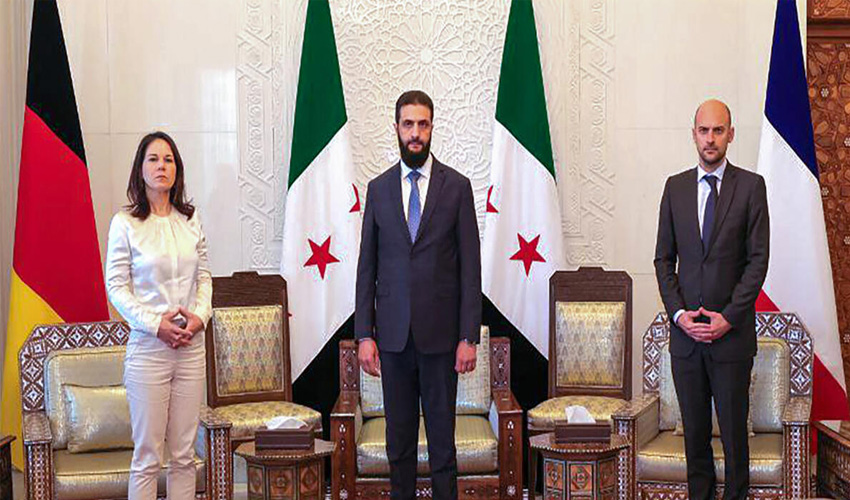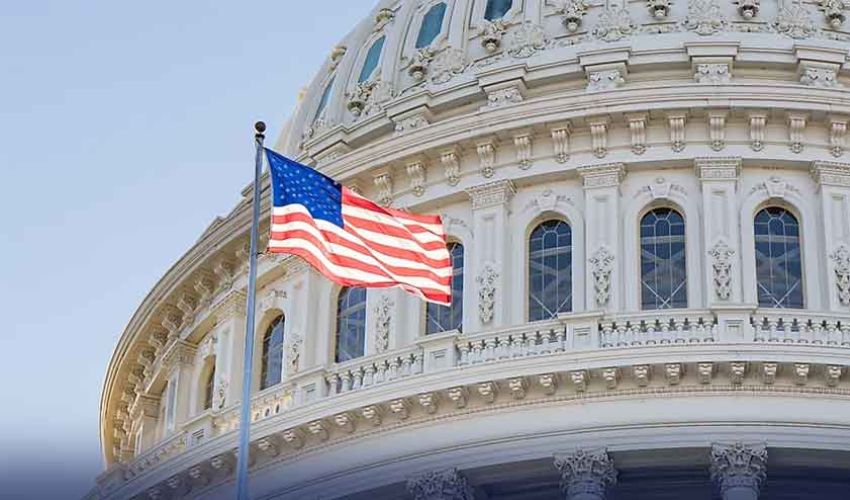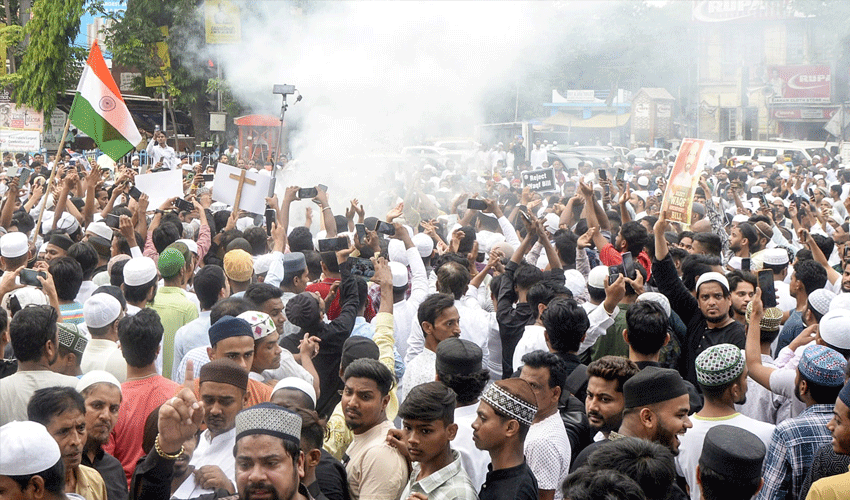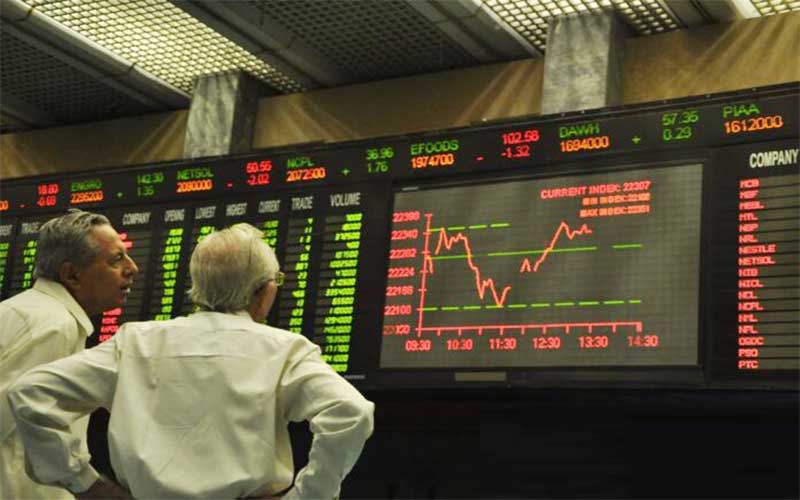German Foreign Minister Annalena Baerbock and her French counterpart Jean-Noel Barrot met with Syria’s de facto leader, Ahmed al-Sharaa, in Damascus on Friday.
The meeting marked the first visit by senior European officials since the fall of former President Bashar al-Assad last month.
The visit, viewed as a significant policy shift by European powers, comes amid deliberations over the potential removal of Hayat Tahrir al-Sham’s (HTS) terrorist designation.
HTS, led by al-Sharaa — also known as Abu Mohammed al-Julani — spearheaded the rebellion against al-Assad and now holds authority in Syria.
In a post on social media platform X, Barrot expressed France and Germany's solidarity with the Syrian people, advocating for a “peaceful and inclusive transition to ensure regional stability.”
Following his arrival in Damascus, Barrot emphasised the importance of integrating Kurdish allies into the evolving political framework, calling it essential for long-term peace.
‘Europe will not finance Islamist structures’
Addressing a press briefing after her discussions with the new Syrian administration, Baerbock made it clear that while Europe was willing to support Syria’s recovery, it would not back any Islamist ideologies embedded in governance or civil institutions.
“Ethnic and religious representation, including women’s voices, must be guaranteed in the constitutional process and the future government of Syria,” Baerbock asserted.
The ministers also toured Sednaya Prison, infamous for its role during the Assad regime’s rule, where political prisoners were subjected to extrajudicial killings, torture, and disappearances.
“Visiting Sednaya gave us only a glimpse of the unimaginable suffering inflicted during Assad’s reign,” said Baerbock. She called for establishing accountability mechanisms to help Syria “heal its deep wounds.”
Calls for moderation and inclusivity
In their discussions with Syrian officials, the ministers presented a set of demands aimed at fostering stability in the war-torn nation. Key among these were calls to avoid vengeance against opposition groups, promote inclusive governance, and chart a clear path toward elections, which Syrian authorities said could take up to four years.
Baerbock also urged caution against introducing religious content into judicial and educational systems, a concern amplified by recent curriculum changes, including the removal of references to “Gods” in ancient history courses and traditional poetry celebrating women and love.
Regional concerns
France and Germany also highlighted the potential resurgence of ISIL amidst Syria’s volatile environment. “Radical groups like ISIL pose a grave threat not just to Syria but to the entire region,” noted Al Jazeera’s Hashem Ahelbarra, reporting from Damascus.
Western diplomats stressed that HTS must adopt a moderate stance to gain broader international acceptance. They underlined the importance of forming an inclusive government that represents minorities and establishes a roadmap for Syria’s political future, starting with a constitutional draft by March next year.



























